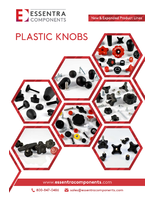Hydrogen Convention moves city forward.
Share:
Press Release Summary:
According to Mr. Coble, Mayor of Columbia, National Hydrogen Association convention was a step forward in Columbia's efforts to enter knowledge and green economy. Delegates from all over world were enthusiastic about community's knowledge of hydrogen and fuel cells, including research going on at USC under leadership of Harris Pastides. Success of convention is important part of long-term strategic plan to transform economy, create jobs, and raise per capita income.
Original Press Release:
Hydrogen Convention Moves City Forward
The National Hydrogen Association convention was an important step forward in Columbia's efforts to enter the knowledge and green economy. The delegates, from all over the world, were enthusiastic about Columbia's friendly hospitality and the community's knowledge of hydrogen and fuel cells, including the research going on at USC under the leadership of Harris Pastides. Two thousand of our local citizens attended the public day on Wednesday, with school children and others experiencing, first hand, what the hydrogen buzz is all about. The ride and drive, the Segway experience and the fuel cell district tours were all well received.
The new Columbia hydrogen fueling station was opened by House Speaker Bobby Harrell, and seven hydrogen-powered vehicles were able to refuel multiple times during the week, including the new hydrogen hybrid bus, which will become part of our Regional Transit Authority. The number of volunteers was significant, and the press coverage was great. It was truly a great event for Columbia.
The success of the National Hydrogen Convention is an important part of our long-term strategic plan to transform our economy, create jobs and raise our per capita income - even in the face of the recession. In February 2003, Columbia adopted our regional technology plan. We created Engenuity, a coalition of leaders from the public, higher education and private sector. Then-USC president Andrew Sorensen announced the research campus in downtown Columbia in late 2003. In April 2006, USC, the Guignard family and the city unveiled a master plan for the 500 acres in downtown from Innovista to the waterfront. The state was a key catalyst for this progress, with the creation of the Life Sciences Act and the endowed chairs.
The first phase of Innovista - two buildings at the Horizon Center and the Discovery Center - is complete, as are the two parking garages financed by the city and Richland County, representing an investment of more than $140 million. According to a survey, 90 percent of city residents support the research campus and master plan. The Association of University Technology Managers recently ranked USC No. 11 out of 114 public universities in the number of start-up businesses created. We are working hard to make sure the money from the federal stimulus legislation for alternative fuels and energy efficiency are spent effectively.
We know we must work to ensure that our entire diverse population benefits from the knowledge economy and Innovista. That's why Engenuity began working with the Greater Columbia Chamber of Commerce, New Carolina and Columbia Opportunity Resource on the Columbia Talent Magnet project. More than 8,000 students graduate from a Columbia institution of higher education each year. The Talent Magnet project is designed to keep these bright minds in the Columbia region by connecting them to existing community initiatives. Also, the USC Columbia Technology Incubator has assisted 63 companies and created 554 new jobs, including 142 minority and female jobs.
Entering this new knowledge and green economy will create jobs and raise our per capita income. During these tough economic times, we must seize our future and transform our economy.
Mr. Coble is the mayor of Columbia.




